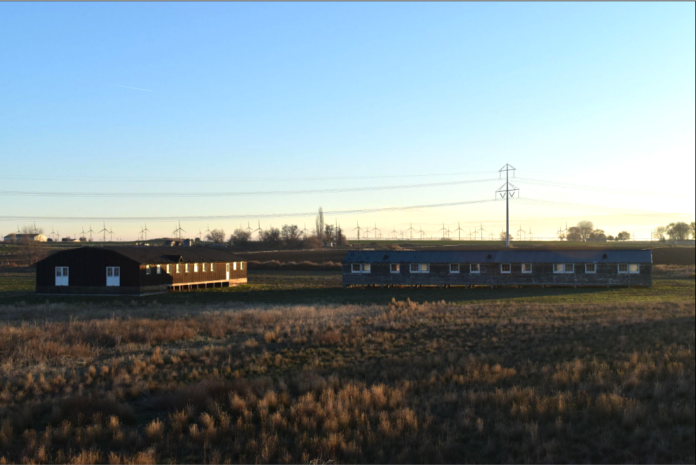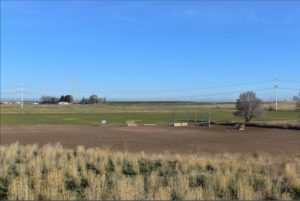
BY ISAIAH FRIZZELL

On January 21, 2025, President Donald Trump issued an executive order titled “Temporary Withdrawal of All Areas on the Outer Continental Shelf from Offshore Wind Leasing and Review of the Federal Government’s Leasing and Permitting Practices for Wind Projects.”
“This order temporarily halts offshore wind lease sales in federal waters and pauses the issuance of approvals, permits, and loans for both onshore and offshore wind projects. The Interior Secretary is tasked with reviewing wind leasing and permitting practices, considering environmental impacts, economic costs, and the effect of subsidies on the wind industry.” (Whitehouse.gov)
Southern Idaho’s controversial Lava Ridge Wind Project has been put on hold following a federal suspension order. The project, proposed by Magic Valley Energy, was to install up to 400 wind turbines across 57,447 acres of public land in south-central Idaho. Strong opposition from local communities and conservationists—citing concerns over its proximity to historical sites and potential environmental impact—led to heightened scrutiny and many protests.
In response to the federal halt, Idaho Governor Brad Little has reinforced the decision with Executive Order 2025-01, officially titled the “Gone with the Lava Ridge Wind Project Act.” This state-level action mirrors the federal stance, signaling Idaho’s alignment with efforts to preserve the region’s natural landscapes and historic landmarks.
The decision underscores the growing debate over balancing renewable energy expansion with environmental and cultural preservation, a conversation that continues to shape energy policy across the nation.
How do you feel about the proposed project?
After 78 executive orders signed on President Trump’s first day in office, along with his first term he has signed a total of 220 executive orders.
Article II of the U.S. Constitution grants the President executive power and the duty to “take care that the laws be faithfully executed.” And while executive orders must align with existing laws and the Constitution, they do not require approval from Congress.
On the other hand, Congress can pass laws to override them, and the Supreme Court can rule them unconstitutional.
Historical executive orders include the Emancipation Proclamation – Issued by President Abraham Lincoln in 1863. The order freed enslaved people in Confederate states during the Civil War. Previous, in 2017, President Donald Trump issued the travel ban restricting travel from several majority-Muslim countries.
It may be useful to remember that congressional opposition can override the orders.
If an executive order conflicts with existing laws, Congress can pass legislation to override it through ‘Judicial Review,’ where courts may strike down an executive order if it is deemed unconstitutional as well as ‘State Resistance’ where individual states may refuse to comply or file lawsuits to block implementation of any particular order.
Hence, they are not set in stone.
Executive orders may be of use or may become obsolete. They may be undone by future administrations and deemed unnecessary in due time.
Other orders which may affect Blaine County or Idaho include:
Immigration Enforcement Intensification
The new administration has a special focus on immigration enforcement, including expanding the expedited removal process of illegal immigrants nationwide. This demands the rapid deportation of individuals who cannot prove they have been in the U.S. continuously for two years or more. Idaho’s agricultural sector, particularly dairy farms that rely on immigrant labor, could be significantly affected by these stricter enforcement measures.
Reevaluation of Federal Infrastructure
and Climate Funds
An executive order was issued to halt the distribution of funds from the 2021 infrastructure law and the 2022 climate statute. This pause may allow agencies to review and ensure that the allocation of funds aligns with the administration’s policy objectives. The halt could impact infrastructure projects in Idaho, including those in Blaine County, by delaying or altering planned developments.
Rollback of Diversity, Equity, and Inclusion (DEI) Initiatives
The Trump administration is intent on dismantling DEI efforts within federal agencies and the private sector. Placing employees of DEI-related offices on leave and halting DEI activities across the federal government could influence organizations and institutions in Idaho that receive federal funding or follow federal guidelines related to DEI.
If you’re involved as a local stakeholder it is advised to monitor these developments to assess and respond to impacts that may affect any program or organization you may be involved with.


